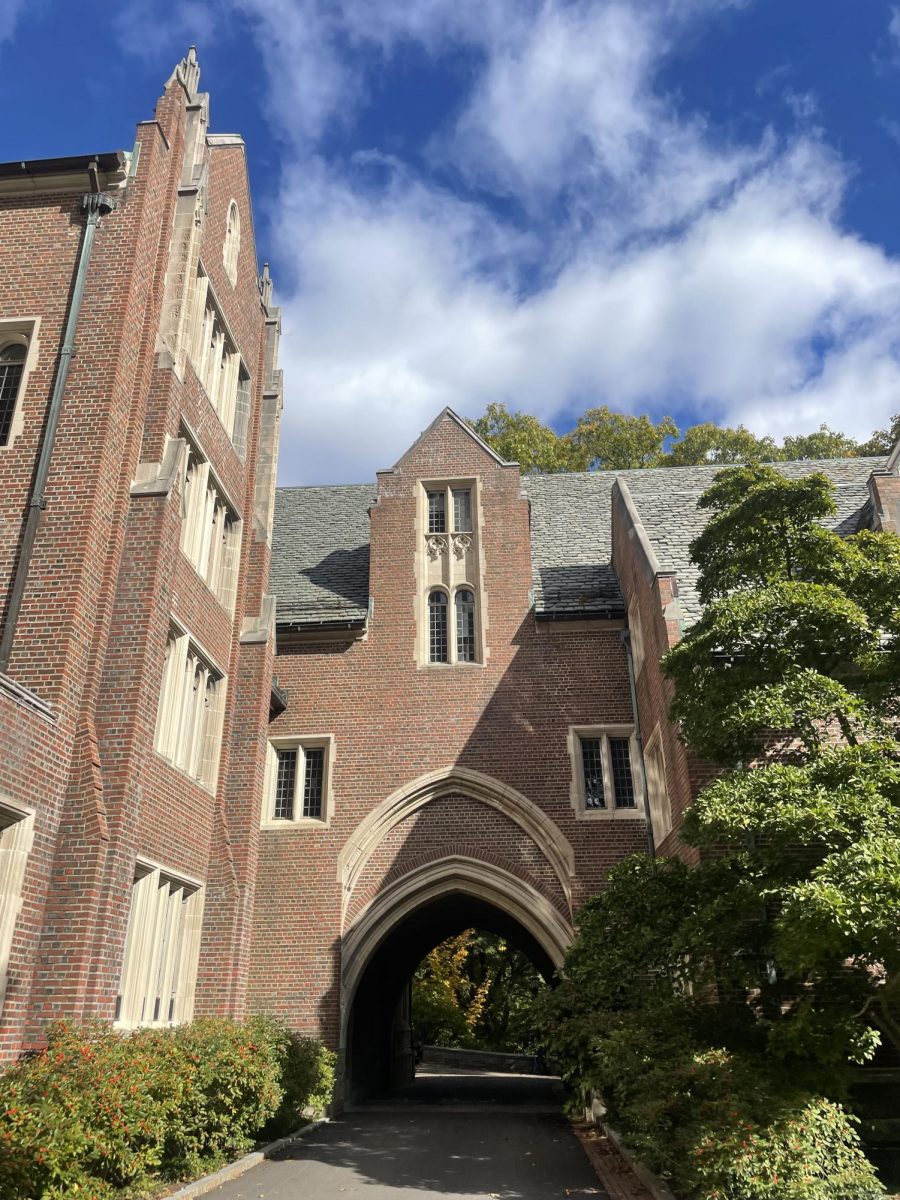Sama Mundlay ’20 “was a revolutionary,” according to her friend Ashley Wang ’20. Mundlay passed away last August in a vehicular accident in Amsterdam. Her death sent shockwaves through the Wellesley community, as she was a friend to many and a passionate organizer for sexual education and sexual health on campus. Mundlay was part of the student group the Sexual Health Educators (SHEs). Wang, who joined the SHEs alongside Mundlay her first year, is now the organization’s president. She and the rest of the group wanted to do something to honor Mundlay’s memory, and so on Tuesday, Sept. 24, they hosted Dr. Emily Nagoski, a noted sexologist who, like the SHEs, began her sex ed career as a peer heallth educator at the University of Delaware.
Nagoski was chosen for the Sama Mundlay Memorial Lecture, according to Claudia Trevor-Wright, director of Student Wellness, because her work meshes well with Mundlay’s values.
“Sama’s beliefs about sexual health and sexual rights were infused throughout her academic, professional and extracurricular life,” Trevor-Wright said. “She affirmed peoples’ right to sexual health and self-determination as does Dr. Emily Nagoski.” Nagoski’s career spans many avenues: she is a prolific speaker in forums such as TED talks, has written articles on topics ranging from incels to how to help friends who were sexually assaulted and has written two books. Her acclaimed book “Come As You Are: The Surprising New Science That Will Transform Your Sex Life” provides worksheets, exercises and scientific backing to help people make their sex lives as healthy and affirming as possible. Her more recent book, “Burnout: The Secret to Unlocking the Stress Cycle,” which she co-authored with her sister Amelia, covers a slightly different topic, but it is like “Come As You Are” in that its ultimate goal is to help with women’s wellness in an often violent, stressful and patriarchal world.
Nagoski was described by Claudia Trevor-Wright as “the Mr. Rogers of angry feminists.” She opened her speech to a packed room in Tishman Commons with ““I’m here to talk about my very favorite topic in the entire world: sexual pleasure.” Wang said that this normalization of talking about sex was the best way to celebrate Mundlay’s 21st birthday, which coincided with this lecture.
“After Sama’s passing last August, we really wanted to have a tribute to her on her birthday,” Wang explained. “She was amazing, and we wanted to give people a space to remember her. She was really passionate about building communities on campus, and being the forefront of radical change … she was a commie!” She organized panels on dating as a person of color, and personally ensured that President Johnson promised all students would have access to contraceptives on Wellesley’s health insurance.
“In her SHE application, Sama wrote that she believes the best feature of the Wellesley community is how palpably it exists, no matter where you are in the world … you need to cultivate the communities you are a part of,” said Wang at the lecture.
Mundlay’s friend Mia Tucillo ’20 agreed. “Sama was probably, definitely, my best friend here. A huge part of what this school means to me,” said Tucillo, who added that Mundlay changed the way she thought about sex. “I can say for absolute certain that Sama’s friendship improved my sex life.”
Wang noted that, though Mundlay’s impact at Wellesley and in the world was wide-ranging, the College’s stress culture can make honoring her legacy difficult.
“At convocation, they didn’t mention Sama’s name, which I think should be addressed,” Wang said. “I think it’s important because when we lose a member of our community like that, they should be honored, as opposed to getting caught up in all the discourse that’s going on, on campus. It’s important, when big events like this happen, to just stay in the moment, and just address it. Honor it in some way.”
One other way in which Mundlay has been memorialized on campus is through the renaming of the American Cities Summer Internship Program, which she participated in during the summer of 2018, working at the Women’s Foundation in California. Rocio Garza Tisdell of Career Education pushed for this change.
“In the Spring of 2019, someone reached out to Career Ed through development office and the president and said they were looking for a way to honor Mundlay and commemorate her legacy through the work we [Career Ed] might be doing,” Garza Tisdell said. “Sama was so dedicated to being a part of the community, which is a central theme of the American Cities program, that is just made sense.” The program will now be called the Sama Mundlay Class of ’20 American Cities Program.
Wang hopes that Nagoski’s lecture will help people remember Mundlay’s work and inspire them to continue it. “She would want people to just be the radical change they want to see,” she said. “She cared about people, she wanted to change the world and firmly believed that she could. She’d want people to have fun, and not take yourselves too seriously, and to live in the moment. And to celebrate and normalize sex, and talk about sex.”






